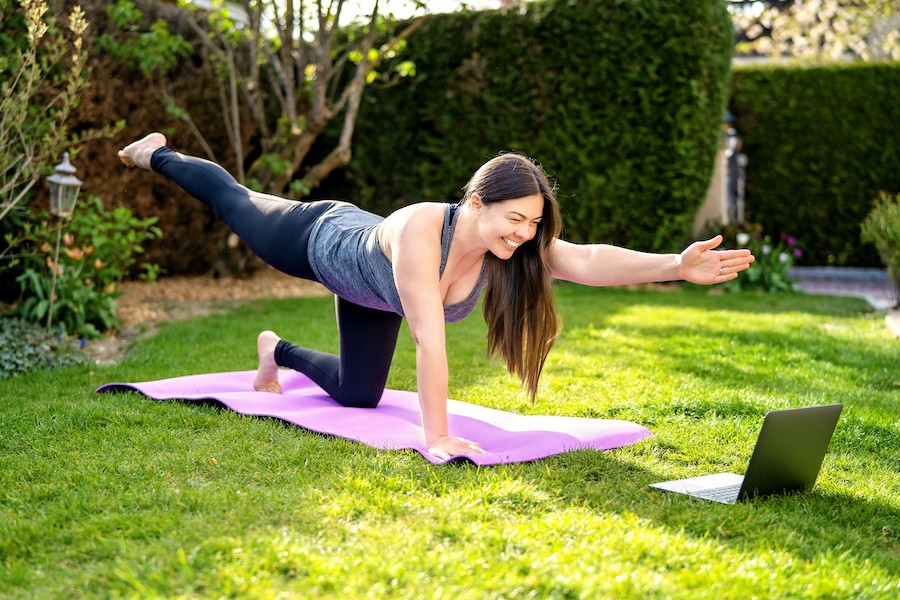Top 3 Coping Mechanisms for Dealing with Anxiety

National statistics claim that more than 1 in 10 people in the UK are likely to have a ‘disabling anxiety disorder’ at some stage in their life. In addition to this, approximately 13 percent of adults in the UK will develop a specific form of anxiety at some point in their life.
These staggering figures highlight the extent of how anxiety is crippling our society and preventing people from living a healthy life.
Anxiety, for the most part, is a normal human emotion that is usually triggered by stress or the impending possibility of danger. Anxiety is often the foundation of the popular ‘fight or flight’ survival response – that prepares the body for physical or mental challenges, ready to tackle them head on and extend chances of survival.
However, the key to understanding your anxiety and its triggers solely lies in your ability to recognise these symptoms early, and adopt the right coping mechanisms in the moments that matter.
We’ve compiled a list of our top three tips to take on board when dealing with anxiety.
| 1) Take care of your mind |
The first step to preparing your mind to cope with your anxiety is trying to accept that you can only control the controllable. By focusing your energy of the aspects of your life you do have control over and relinquishing control of the things you can’t, you will automatically put yourself in a better position to reduce your stress levels and ease the symptoms of your anxiety.
For example, if you’re unhappy in your job and feel it’s not taking you in the direction you need it to, then take small steps to change your environment. This could be anything from writing a list of what you’re looking for in your perfect role or spending a night updating your CV.
Contrastingly, spending your time wishing your boss or colleagues were more on your wavelength or dwelling on the negative aspects of your job are prime examples of focusing on something that you can’t control, and need to move on from.
.
| 2) Maintain a healthy body |
Numerous studies prove that a healthy lifestyle dramatically increases your mental health. In addition to regular exercise, a healthy and balanced diet that reduces caffeine and alcohol consumption can help keep you focused. Both alcohol and caffeine are two of the most common dietary triggers that negatively impact people with anxiety disorders, so should be avoided whenever possible.
In moments of stress and anxiety, the body often needs more time to recharge. The best solution to this is to ensure you get at least eight hours of sleep per night. If your anxiety prevents you from drifting off to sleep easily, try basic relaxation methods such as having a bath before bed, drinking camomile tea and limiting your use of smart devices at least one hour before you aim to go to bed.
.
| 3) Take positive action |
Breathing is often something people take for granted. As the body’s automatic impulse, we breathe without thinking about it and as a result, often never consider the benefits that controlled, deep breathing can have on our mental health. Deep breathing can help alleviate the symptoms of anxiety as it draws more air into the lungs, generates maximum blood flow and leaves the body more energised. It is also the fastest and most effective way to feel calm and manage our emotions.
So the next time you find yourself in an overwhelming situation, take a few minutes out to take deep breaths and slowly count, while you gain your composure.
Volunteering can also be a superb way to take positive action to help reduce your anxiety symptoms. Research shows that oxytocin, a neurotransmitter that regulates social interaction, spikes in people who volunteer on a regular basis. This, in turn, leaves them better equipped to handle stressful or anxious feelings.
Talking to friends and family can also be a fantastic way to help process your feelings of anxiety. However, depending on the severity of your anxiety, it may be time to seek professional help from an accredited therapist to help gain a deeper understanding of your triggers. Cognitive Behavioural Therapy, in particular, has been shown to be an effective way of treating anxiety disorders. So if you feel that your anxiety is preventing you from living the life you’ve always wanted, make sure you reach out to a professional as soon as you can.
